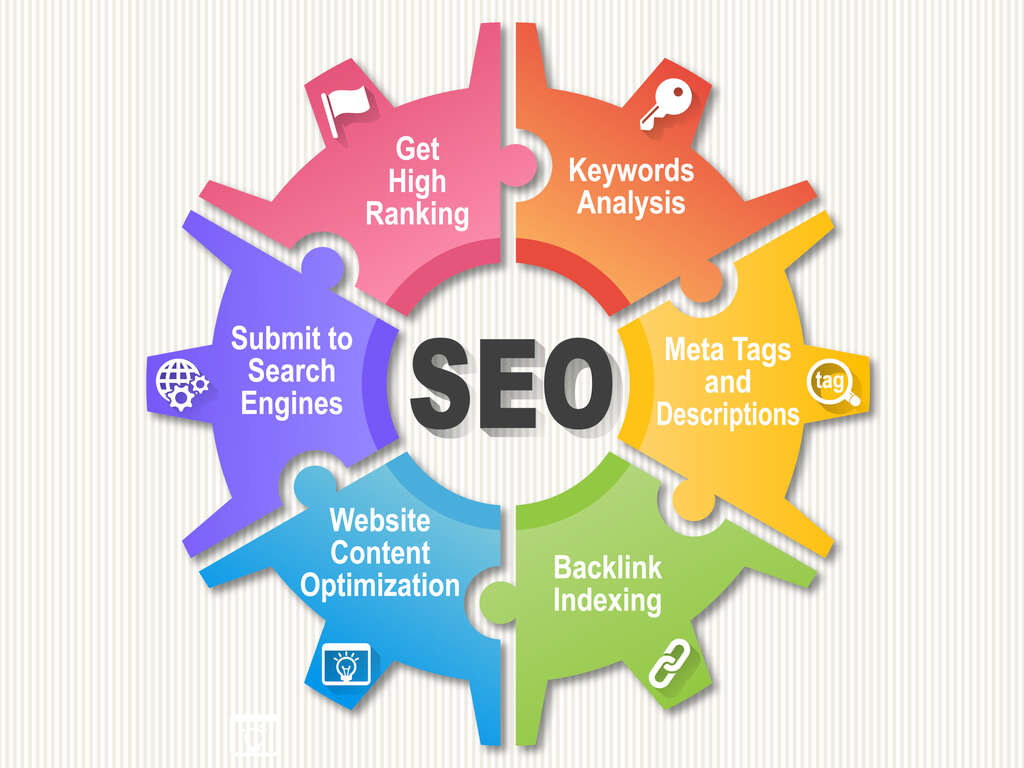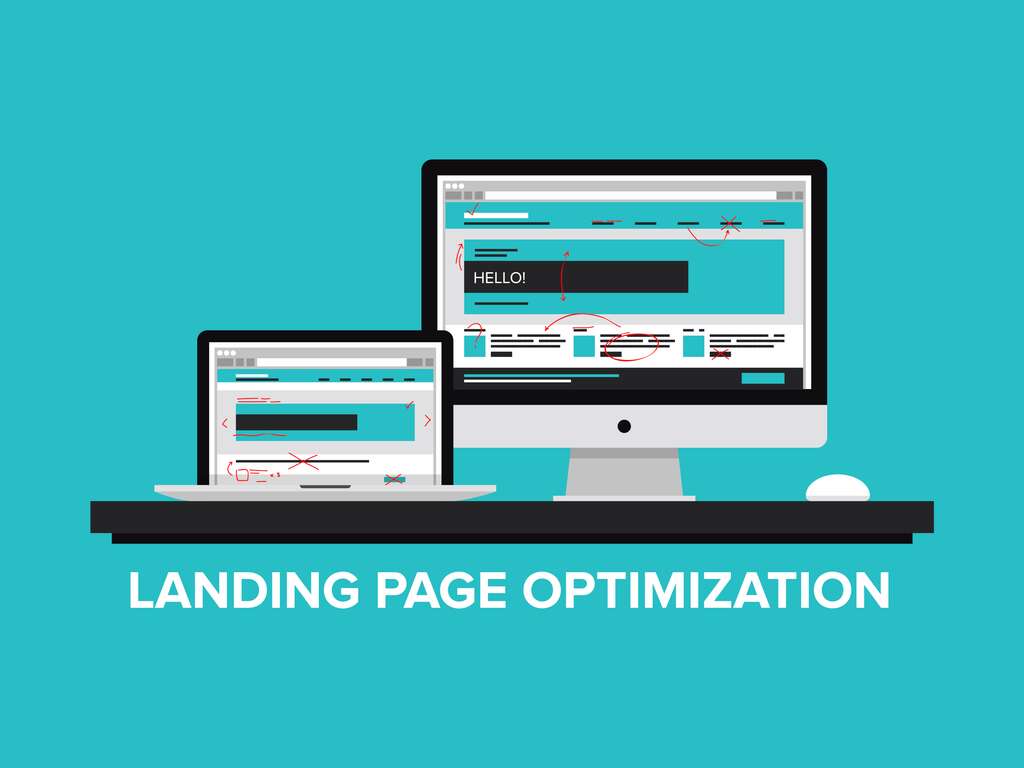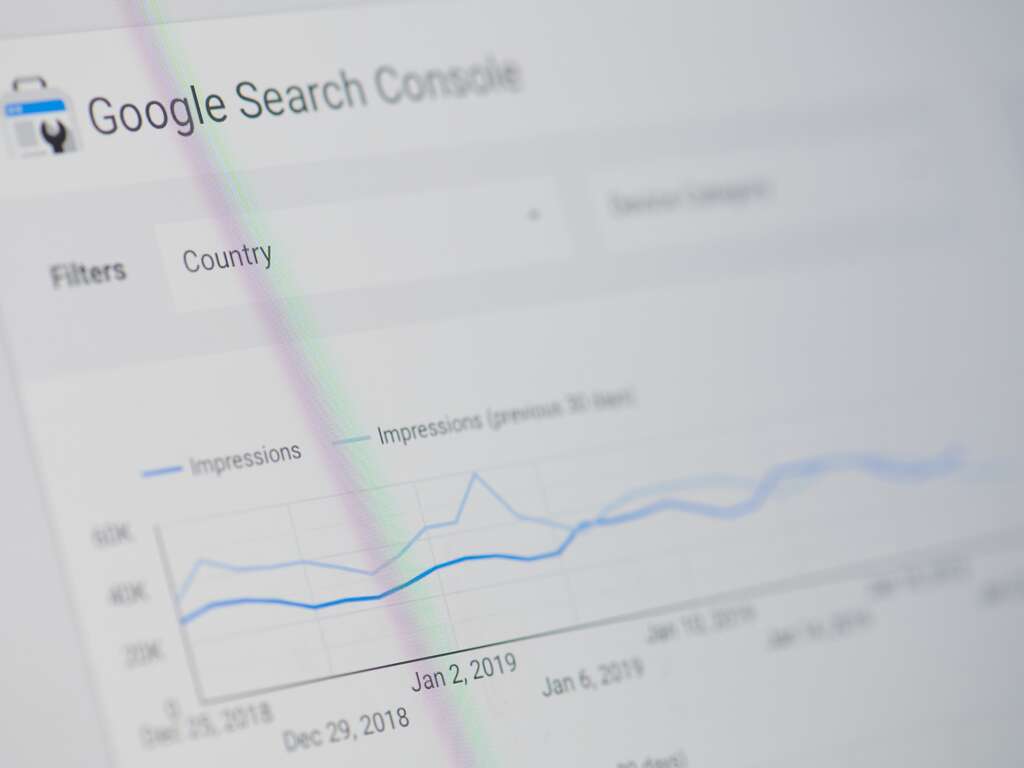If you are a digital marketer or someone who owns a website, you know it can be challenging to rank high in Google search results. Google has a complex algorithm that determines how websites rank on its search engine and understanding the various factors can take time and effort.

However, if you understand the factors that Google considers when ranking websites, you can optimize your site accordingly and improve your chances of appearing first in search results.
This article will provide an exhaustive list of Google’s 200 ranking factors, including the most integral components.
What Are Google Search Engine Rankings?
Google’s search ranking algorithm is an intricate system that uses more than 200 components to assess a website’s visibility and relevance accurately. Factors such as keyword usage, overall quality content, and the number of backlinks all affect how high a website will fall on the search engine list.

Interestingly enough, Google also focuses heavily on user intent and the user experience that each site provides, taking into account page or site speed and mobile-friendliness in addition to web page elements that we will discuss in detail.
Search Results
Websites need to strive for a high-quality user experience and SEO-rich content if they wish to rank higher in Google searches.

If you want to stay relevant and have a higher chance of being seen on Google, then you need to be aware of Google’s ranking factors. This is especially important for SEO specialists, marketers, and website owners.
Top 10 Google Ranking Factors You Need To Be Aware Of

Whether you’re doing on-page or off-page SEO, implementing Google’s top ranking factors is critical to success. Google’s search algorithm constantly changes, but here are ten of the most important ranking factors that Google looks at when evaluating search query results.
1. Relevant and Unique Content
With the ever-increasing amount of content on the internet, it can often be challenging to differentiate between influential sources and those that could be more reliable.
Google recognizes this issue and works diligently to provide its users with content that is both relevant to their search query and accurate and unique. Their algorithm seeks out pages with quality information and ignores outdated or inaccurate sites.
There are three factors you need to consider when creating content:
- Relevance: Relevant content should be closely related to the topic that it is about. Google looks for content that contains specific keywords and phrases associated with the search query but also provides a more sophisticated approach when assessing relevance.
- Quality: Is the content well-written, and does it offer an in-depth look into the chosen topic? Google’s algorithm looks for quality information written by experts on the subject or from reliable sources.
- Usability: Google prefers content that is easily accessible on mobile devices, tablets, and desktop computers. Additionally, content must be easy to understand so that users can quickly find the information they are looking for.
Some tips to consider for creating content that Google looks for:
- Conduct comprehensive keyword research: Google’s algorithm looks for content that contains relevant keywords, so it’s important to do keyword research to find out what phrases are most likely to be associated with your topic.
- Make sure your content is up-to-date: Users want timely information, and Google knows this. Make sure your website provides the most up-to-date content to keep everyone happy.
- Focus on user search intent: Google understands the objective of every search query and provides results that will satisfy those needs.
- Break up content with visuals: For users to find the information they need quickly, content must be easy to follow and visually appealing. Google encourages page owners to include visuals like images, videos, infographics, and other multimedia to help attract more user attention.
2. Optimize Keywords That Your Target Audience Is Searching For
Keyword optimization is one of the cornerstones of successfully ranking in search engine results. To start with, Google looks for pages that contain the keywords and phrases associated with a search query, but it also looks at how effectively those words are used in context throughout the page.

Using related terms and synonyms can help a page rank even better since it paints a more compelling picture of relevancy to Google. Additionally, how often a keyword appears on the page and where it seems helps determine how favorable a page looks in Google’s eyes.
Keyword density and usage must be balanced, though. Google can detect if a page is overly-optimized with keywords and will penalize it accordingly.
3. Quality Backlinks

To earn Google’s favor, it is essential to have a strong link-building strategy for your website. For Google to recognize your website as authoritative and trustworthy, be careful about the types of backlinks you create.
The most effective backlinks come from websites related to your website’s topic and those with a good reputation and authority.
It is essential that you avoid using shady or unethical tactics such as buying links or engaging in link schemes; if Google detects any of these activities, it can result in a major penalty against your website.
Google is also constantly looking for new websites to link back to, so it is important to reach out and create relationships with other websites that can provide you with quality links.
4. Mobile-friendly

With mobile searches continuing to increase, Google has made it a priority to ensure users have a great experience while navigating search results on their devices.
Google’s mobile update, dubbed “mobilegeddon,” marked the point when Google began to give preference to mobile-friendly websites. Google favors responsive sites that have a seamless user experience across devices and use Google webmaster tools to verify their website’s mobile compatibility.
For example, Google’s Mobile-Friendly Test lets you validate your page’s responsiveness and mobile-friendliness. If your page fails to pass Google’s standards, you can receive helpful advice on what to improve for Google to recognize it as mobile-friendly.
5. Optimize Your Page Load Time
Keeping page load time short is an essential factor for website optimization. Google values websites that load quickly, which gives users the best experience possible.
Making sure your website is optimized for speed isn’t just about keeping Google happy — it’s essential to be successful in the digital world.
Any changes you make can greatly impact your website’s loading time, whether you’re optimizing images and compressing files or streamlining scripts and plugins.
Since Google is constantly evolving its algorithms and evaluating page speed, it’s essential to keep an eye on how quickly your page loads. Google PageSpeed Insights can help you identify areas that need improvement to optimize your website.
6. Organic CTRs
Google places a lot of value on organic clicks it receives for websites within its search engine results page (SERP). As the number of clicks increases, so does Google’s interest in the website.
Google takes this as a sign that its users find the content valuable and relevant, weeding out low-quality websites while promoting quality ones that match users’ search queries.
Thus, it is clear that when users rely more on a particular website that has frequently been appearing on SERP, they send out a powerful message to Google. A message that radiates trustworthiness, accuracy, and relevance in search results — all of which Google values greatly.
You can optimize your website’s organic click-through rate (CTR) by researching and tweaking your meta titles and descriptions and looking at Google Analytics to track user engagement on your website.
You can also use powerful words to draw in more clicks.
Examples of power words include:
- Best
- Top
- Guide
- Latest
- Expert
- Popular
- Ultimate
7. Length of Content
While most digital marketers recommend content that is 2,000 to 3,000 words long, Google has a different word count that it expects from websites.
Simply put, Google will value quality content over quantity regarding ranking factors. This means that a website can be ranked higher in Google than one with more content if Google deems the shorter article as being of higher quality.
Of course, if the topic covered is much larger than what can be addressed in a shorter article, Google will not penalize you for writing more.
It’s important to focus on creating quality content that is easy to read and understand, covers the topic extensively and efficiently, and provides Google with the necessary signals to rank your website higher in search results.
8. Website Security
It is becoming increasingly important to have an SSL certificate for your website as it can significantly improve the ranking of your website on Google. It conveys a sense of trustworthiness in the eyes of Google and consumers, making it more likely that customers will choose your website over one without an SSL.
With its end-to-end encryption, the SSL ensures that any information passing between your website and its users remains private and secure from malicious activities or hackers.
It is also easy to ensure compliance with various regulatory standards and requirements, so there are multiple advantages to having an SSL certificate for your website. If you still don’t have one, you can get an SSL certificate for your website from your web hosting provider or a third-party SSL provider.
9. User Engagement
UX signals, or user engagement signals, are an indispensable aspect of how Google determines the ranking position of a website. As visitors navigate and explore your website, Google observes bounce rates (how quickly users exit your site), click-throughs from SERPs (search engine result pages), and other metrics like average time spent on the page. All this data is aggregated to indicate which sites offer the best user experience and therefore warrant higher rankings in SERPs.
Since excellent UX design is key for retaining users, investing in good UX design can result in better engagement metrics and improved search engine performance.
Some tips to improve user engagement could be:
- Enhancing website navigation and structure to make it easier for visitors to find what they are looking for
- Eliminating distractions on the page, like pop-ups and ads, which can be intrusive and off-putting
- Implementing a responsive design that works across different devices
- Making sure your content is engaging and easy to read
10. Structured Data
Structured data is a method of organizing content on your website in a way that Google can easily understand. It allows Google to distinguish important information from irrelevant content, recognize patterns and relationships between pieces of content, and better index your website for its SERPs.
Structured data also helps Google determine the context of each page through schema markup, which Google uses to display rich snippets alongside your website’s content in search results.
Using it can result in more accurate information being displayed on Google and improved visibility of your website, as well as an enhanced CTR.
Fortunately, Google provides easy-to-follow instructions for implementing structured data on your website. Google’s Structured Data Markup Helper simplifies the process and makes it easier for you to get started.
A Comprehensive List of Over 200 Google Ranking Factors

Google has released thousands of algorithm updates since 2006. As Google’s search algorithm continues to evolve and change, so have Google ranking factors.
The list below contains the 200 Google ranking factors that affect where your website is placed in a search.

Domain Factors
A domain is critical for the success of a website. It serves as the unique address on the web where visitors can find a website, so it’s crucial to select a good one that is easy to remember. Google looks at several factors when evaluating your domain, such as:
- Domain age
- Keyword use in the domain name or an exact match domain
- Keyword placement in the domain name
- Domain registration length
- Keyword use in subdomain
- Domain history
- Penalized Whois owner
- Public Whois data
- Country TLD Extension
Page-level Factors (On Page SEO)

Page-level factors refer to the specifications of how search engines evaluate an individual web page and determine where it should be placed on search engine results. They are focused on particular elements on the page, hence on page SEO.
For SEO success the importance for a search engines search results will include specifics. The technical SEO and keyword ranking for individual web pages relies on the uniqueness of each page within the same site.

A Question Every Website Owner Should Ask
There is a question every website owner should ask themselves – Would you send someone to your own website? Hopefully that answer is yes, if it is no, learn what a ranking factor is and how metrics and SEO tools can help improve your website to make you a proud website owner.
To land on the first page of organic search results the SEO ranking factor will have a common template of sorts with other pages. Each page would include meta descriptions, image tags, title tags, quality of written content, the theme of the page would be consistent with a particular keyword or keyword phrase.
Keyword density is monitored, URL structure, internal links, external links, internal link anchor text, helpful supplementary content such as a table of contents, and last but very important for the search algorithm – the page loads well on a mobile device and desk top.

60 Google ranking factors that can be optimized on your web pages:
- Keyword use in the title tag
- Keyword placement in the title tag
- Meta description keyword use
- H1 tag keyword use
- Frequent keyword use across the content
- Content length
- Word count rankings
- A linked table of contents
- Keyword density
- Use of semantically related keywords in meta title and description
- In-depth quality content
- Relevant content
- Page speed via HTML
- Page speed tested on Chrome
- Core web vitals
- No duplicate content on a website
- Image optimization
- Content recency
- Page age
- Edit frequency on the content during updates
- Historical data on page updates
- Correct use of rel=canonical element
- Keyword use in H2 and H3 tags
- Keyword use in the first 100 words
- Grammatical correctness
- Content originality
- Entity match
- Outbound link frequency
- Outbound link quality
- Outbound link theme
- Mobile usability and optimization
- Hidden content on mobile (may not be indexed)
- Optimized for mobile
- Multimedia use, including images and videos
- Use of supplementary tools, like free calculators
- Content hidden behind tabs (may not be indexed)
- Backlink frequency
- Internal links that are quality
- Too many broken links (could negatively impact ranking)
- Page reading level
- Using too many affiliate links
- Too many HTML errors
- Domain credibility
- Page credibility
- PageRank
- Length URL
- Closeness of URL to the homepage
- Keyword use in the URL
- Human editor judgment
- Relevance of page’s category
- User-friendliness and readability
- Priority of the page in the sitemap.xml
- UX signal from pages ranking for the same keyword
- Citing credible references and sources
- A user-friendly layout
- A URL string in Google search engine results
- Internal link anchor texts
- Use of structured data
Site-level Factors

When building a website, it is essential to consider the site-level factors that Google uses in its search algorithm. These include every single page meets the desired features, such as page speed for mobile devices and each mobile device usability, content quality and relevance, structured data markup, and other search engine optimization opportunities to improve the user experience and therefore increase search volume.
19 Site-Level Metrics and Best Practices for Search Engine Rankings
- Presence of a contact us page or displaying sufficient contact information
- Providing valuable content
- TrustRank or Domain Trust
- Website updates for algorithm priority
- Site architecture
- Presence of a sitemap
- Prolonged downtime
- Server location
- Using a valid SSL certificate
- Presence of legal pages, such as terms and conditions
- Distinct metadata
- Use of breadcrumb markup
- Mobile optimization across all pages
- User-friendliness across all pages
- Low bounce rate
- Domain authority
- User reviews
- Site credibility
- E-A-T (Expertise, Authority, Trustworthiness)
The last metric expertise, authoritativeness and trust (E-A-T) includes how to improve for local search results. How trusted an author is, and how simple meta descriptions are used to lend trust.

Google likes great content. To participate with offering expertise and trust is important when building a page.
Backlink Factors
Backlink factors are an essential part of Google rankings that can help to boost a page’s visibility and organic search performance. Google looks at the total number of backlinks, the authority (or trustworthiness) of the referring site, and the relevance of the content linking to your page.
Usually, Google puts more weight on backlinks from high-authority sites and those with good content.
43 Backlink Factors to Consider in 2023:
- Linking domain age
- Referring domain quantity
- Link frequency from separate C-class IPs
- Number of referring pages
- Backlink anchor texts
- ALT tag for image links
- Number of reliable links from .edu and .gov sites
- The trust factor of linking page
- The trust factor of linking domain
- Presence of competitor links
- Number of links from industry leaders
- Links from bad neighborhoods
- Number of links for non-ad sources
- Country TLD of referring domains
- Domain authority
- Using Nofollow links
- Link profile diversity
- Context of the content of a linking page
- Using sponsored follow links or UGC
- Too many backlinks to URLs with 301 redirects
- Text presented when a visitor hovers over a link
- Link location on a page
- Link location on the content
- Links from relevant domains
- Links from relevant pages
- Keyword presence in the title of the linking page
- Natural growth rate in link frequency
- Spiky and unnatural growth rate in link frequency
- Links from top-grade resources for certain topics or hubs
- Number of links from authority sites
- Linking to a Wikipedia article
- Word use around backlinks
- Backlink age
- Linking to real sites versus fake blogs
- Natural link profile
- Too many reciprocal links
- Linking to real content versus UGC
- TrustRank of linking site
- Fewer outbound links from the source
- Links in real content versus forums
- Word count of linking content
- Linking content quality
- Sitewide links = one link
User Interaction

As Google’s algorithms for search engine optimization evolve and become increasingly complex, user interaction is one of the critical elements that any website strives for.
This is because Google emphasizes how users engage with a page, interact with the content, and consume information related to your page’s topic.
The following are the user interaction factors Google looks for:
- Organic click-through rates for exact keywords
- Organic click-through rates for ranking keywords
- Dwell time
- Bounce rate
- RankBrain
- Total direct traffic
- Repeat visitor percentage
- Blocked sites
- Number of visitor clicks on other SERP results after clicking your page
- Page bookmark frequency by Chrome users
- Total comments on a page
Special Google Algorithm Rules
If you want your website to rank high on Google, SEO professionals must be aware of the rules and algorithms that Google takes into account.
However, it’s important to remember that many of these rules and algorithms focus on creating a personalized experience for users rather than directly optimizing web pages or domains.

Rules and Algorithms
- SERP diversity
- SERP freshness
- User browsing history
- User search history
- Proper answers, formatting, page authority, and HTTPS for featured snippets
- Geo-targeting
- Featuring adult content or curse words
- High-quality content for YMYL keywords
- Legal DMCA complaints
- SERP domain diversity
- Transactional searches
- Local search results
- Presence of relevant news articles for Top Stories box
- Search intent
- Big brands using relevant content
- Results optimized for Google Shopping
- Image results
- Branded searches
- Google Easter eggs, April Fools’ Day jokes, and hoaxes
- Spammy queries
- Spammy sites
Brand Signals
Optimizing your website is more than keyword research, link-building strategies, or content. Google also considers brand signals or mentions on the internet.
Google looks at the following factors when evaluating brand signals:
- Brand and keyword searches
- Branded anchor texts
- Legitimate Twitter profile
- Official LinkedIn page
- Facebook page with engagement
- Branded searches
- Known author or verified online profile
- Verified social media accounts
- Top stories with brand mentions
- Brand mentions without links
- Physical office addresses
Google Search No No’s
Spammy sites do not fare well with Google. Established to provide quality and relevant search results to its consumers, Google uses certain web factors when assessing a website’s quality.
Google Rankings Will Examine:
- Poor content quality
- Links to bad neighborhoods
- Too many sneaky redirects
- Flagged server IP address
- Intrusive ads and popups
- Spammy and difficult-to-close popups
- Over-optimizing the site for search engines
- Content full of fluff
- Use of doorway pages
- Ad-heavy pages without much content
- Concealed affiliate links
- Low-value content sites
- Affiliate sites
- Keyword stuffing in meta tags
- Compute generated content
- Nofollowing all outbound links
External Links Matter

The off-site website factors are critical in determining how much spam comes through your website from external sources. As modern internet marketing becomes more complex and interconnected, websites face serious spam issues when their online activity is linked with websites or domains that could be seen as not meeting ethical and safe practice standards.
For example, if a website links to other sites known for low-quality content or questionable practices, search engines could penalize the original site, leading to unwelcome amounts of spam.
Watch for:
- A sudden, unnatural boost in backlinks
- A hacked site
- Excessive use of low-quality backlinks
- Excessive use of links from unrelated websites
- Low-quality directory links
- Automatic widget links
- Links from sites with the same server IP
- Using “poison words” in anchor texts
- Ignoring manual actions in the Google search console
- Selling links
- Temporary link schemes
SEO Tools and Resources To Help You Implement Google Search Ranking Factors
Are you ready to start optimizing your website for Google Search? Google has many resources available to help you understand and implement Google search ranking factors. Other third-party tools can also provide valuable insights into your SEO performance.
Below are some tools and resources to help you get started.
Google Search Console (GSC)

Google Search Console has various features that allow website owners to get the most out of their websites. It provides comprehensive performance data, including insight into your website’s search traffic and visibility.
GSC also offers helpful diagnostics for identifying technical issues, such as indexing errors on your site, that can lead to improved performance. You can also receive notifications from Google about any critical changes or issues Google finds on your website.
Google PageSpeed Insights

Google PageSpeed Insights is an analysis tool used to measure how fast a website loads and how efficiently it uses resources on its pages. It provides invaluable insights into the performance of your website and can help you identify potential issues like slow loading times or inefficient code that could affect Google rankings.
Ahrefs
Ahrefs is a comprehensive tool for web admins to boost their website’s visibility and rankings in search engine results pages. It employs a range of powerful features, such as keyword tracking and backlinks analysis, that help users optimize their content for higher rankings and acquire potential link-building opportunities.
One of the most valuable functions included with Ahrefs is its Site Audit feature, an innovative way to automate performance diagnostics of your website so you can fix any Google ranking factors that need attention.
This user-friendly feature makes it easier to quickly diagnose and fix issues, giving users the power to take control of their website’s visibility.
Answer The Public
Answer The Public is an invaluable tool for delivering content that will feed the hunger of Google. By entering a keyword, you can generate hundreds of questions that users have been actively searching for concerning your particular industry. This will give you the knowledge and scope to create content that satisfies trends and topics productively.
Allowing you to craft titles and curate accurate content, Answer The Public ensures your website or blog is trending with relevant keywords and valid questions related to them.
Thanks to this great asset, you increase the chances of your content landing at the top of SERPs.
SEMRush
SEMRush is a potent tool for website owners and SEO specialists to track their Google rankings and optimize their pages for better performance.
It gives detailed insights into how effective your SEO strategies are, offering valuable information about potential errors you may have overlooked or outdated information on your website that could be costing you precious ranking points.
SEMRush can also be used for efficient keyword research, enabling you to uncover the most promising keywords for your SEO campaigns and ensure that your content ranks well in the SERPs.
Other tools you can use to stay well-informed on Google’s ranking factors include:
- Google Trends
- Google Analytics
- Google Keyword Planner
- Moz
- KWFinder
You can also stay up-to-date on Google’s updates and changes by following Google’s official blog and Google Webmaster Central.
Conclusion

With over 200 Google ranking factors to consider, website owners and SEO specialists can find optimizing an exciting undertaking.
Up-to-date knowledge of Google algorithms combined with the right tools and guidance from the Google Search Ranking Guide can help you ensure that your website is seen by potential customers and stays near the top of Google’s search results pages.
Implementing tips in the guide and a few basic steps can ensure your website rises to the top. Keeping up with ever-evolving technology is essential, but with some effort, you can make sure that your content is seen!
Premazon Inc. Wants to Help You Succeed in Your Optimization Efforts
Premazon is an SEO (search engine optimization) company helps other businesses by optimizing their websites and online content to rank higher in search engine results pages (SERPs). This can increase the visibility and credibility of the business, and make it more likely that potential customers will find and visit the website.
Here are some specific ways that our SEO company can help your business:
Keyword research:
Premazon will help identify the most relevant and popular keywords to target in order to drive traffic to your website.
On-page optimization:
Premazon will optimize the content and structure of your website to make it more search engine friendly, including optimizing titles, headings, and meta tags.
Off-page optimization:
Premazon will help improve the off-page factors that impact your website’s ranking, such as the number and quality of backlinks, social media presence, and local SEO.
Technical SEO:
Premazon will help identify and fix technical issues on your website that may be hindering its performance in search results, such as slow loading times, crawl errors, and mobile usability.
By optimizing a website for search engines, an SEO company like Premazon can help businesses increase their online visibility, attract more qualified traffic, and improve their overall online performance.








